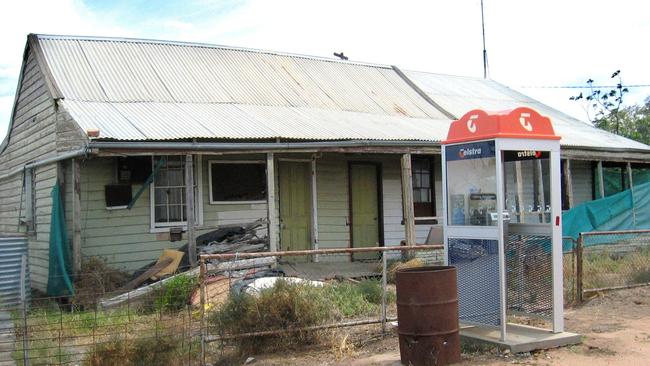Death knell sounds for payphones as government cuts off subsidies
AS SUBSIDIES to keep them operating across the country are wound up early, is this the beginning of the end for the Aussie payphone?
IT LOOKS like the end of the (land) line for the payphone in Australia.
The Federal Government is planning on hanging up early on millions of dollars in subsidies paid to Telstra to supply payphones, with the $300 million contract likely to be wound up in 2020, rather than 2032.
It’s a move which could be the death knell for payphones still operating in Australian cities and regional areas. The loss of the subsidies may force Telstra to rethink its position on the payphones.
The Universal Service Obligation (USO) scheme contract requires everyone in Australia to have access to payphones and voice only standard telephone services.
But the government has found that requirement is outdated in the era of mobile phones.
Telstra receives $40 million a year to maintain the payphone network as part of the USO.
There are more than 20,000 payphones in Australia.
Telstra’s payphones continue to provide a vital service to consumers, despite the availability of mobile services, The Australian reports.
In the past year, about 15 million calls were from payphones, including almost 200,000 emergency calls.
“It’s unlikely that many payphones would exist long-term without USO subsidies,” a Telstra spokesman told The Australian.

The USO will be replaced by a Universal Service Guarantee, likely to take effect when the National Broadband Network rollout is complete — predicted to be by 2020.
But there are fears that the NBN won’t remove the need for payphones, with the Australian Communications Consumer Action Network saying they remain a “relevant as a last resort for many people”.
“The NBN isn’t really designed with the delivery of voice service in mind and Voice over internet Protocol isn’t a carrier-grade option,” said the Network’s CEO Teresa Corbin.
“Our research shows that payphones play a distinct role, especially in regional areas, for transient users, people who can’t use their mobile phones.”
Communications Minister Mitch Fifield says stronger safeguards will be put in place before any significant changes are made.
“The government is taking a ‘belt and braces’ approach to protecting telecommunications accessibility for people in regional Australia,” he said.
Meanwhile, the payphones are still standing, with Telstra recently announcing they can be used for free at Christmas under a program aimed at helping Australians hear the voice of a loved one over the festive period.
For the second year, Telstra will offer free local, national and standard mobile calls from its home phones and more than 16,000 pay phones between December 24 and 26.



